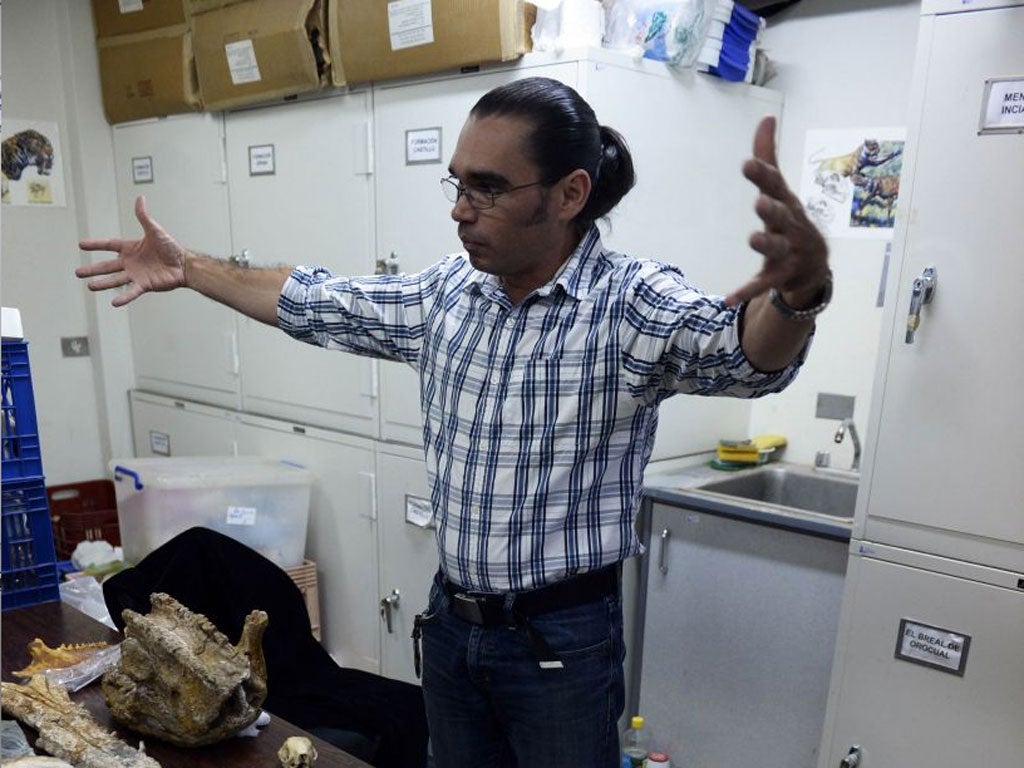Armadillo as big as a car vs bus-sized croc: 12,000 fossils found in Venezuelan oil pit
Palaeontologists have found a 'Jurassic Park' of fossils in Venezuela

Dinosaur hunters say they have unearthed a veritable “Jurassic Park” of ancient fossils in a Venezuelan oil pit, including a giant armadillo as big as a car, a bus-sized crocodile and a sabre-toothed tiger.
More than 12,000 fossils have been discovered during surveys by oil companies in a large region north of the Orinoco River in the South American country, according to a report by Agence France-Presse. Palaeontologists say they date from 14,000 to 370 million years old.
Among the discoveries is a femur of a giant, six-ton mastodon that lived at the end of the Ice Age 25,000 years ago. A featherless chicken that looked like an iguana, a 10-foot pelican and 12-million-year-old giant sloths were also dredged up from the oily ground.
Most of the finds are stored at the Venezuelan Institute for Scientific Research, where scientists have spent years identifying the fossils. It is a laborious process – it took four years for the sabre-toothed tiger to be definitively identified.
“Imagine a puzzle of 5,000 pieces and you have 200 pieces you are trying to interpret and draw a conclusion that might contribute something to science,” head palaeontologist Ascania Rincon told AFP, adding that the institute plans to unveil an entirely new species from the fossils in the coming weeks.
The team has five researchers and a limited budget, but they say their next goal is to prove that prehistoric humans also lived in the region.
“We have already found spearheads,” said Mr Rincon. “What’s lacking is reliable indication that man hunted the mega-fauna that we are finding.” He says part of his goal is to raise awareness about the need to protect the Earth’s ecology. “We are destroying what little is left of the forests, oceans, deserts; we are destroying our ecosystems and accelerating extinction.”
For Venezuela, with the largest proven oil reserves in the world, palaeontology also has economic benefits. “It seems that it has no use, but it has economic implications. With a fossil record, we can determine the age of an oil field,” he said.
Join our commenting forum
Join thought-provoking conversations, follow other Independent readers and see their replies
Comments
Bookmark popover
Removed from bookmarks